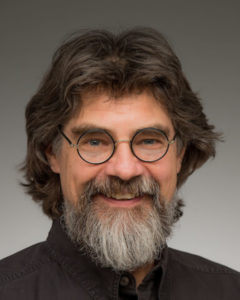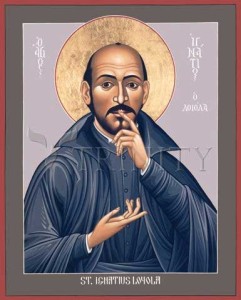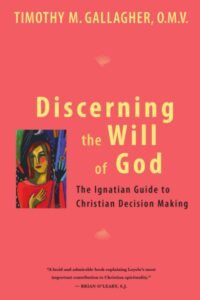Podcast: Play in new window | Download (Duration: 30:35 — 21.1MB) | Embed
Subscribe: Apple Podcasts | Spotify | Amazon Music | Android | Pandora | iHeartRadio | JioSaavn | Podchaser | Gaana | Podcast Index | Email | TuneIn | Deezer | Anghami | RSS | More

Episode 4 – The Form of Liturgy – Pathway to Sacred Mysteries with Dr. David Fagerberg Ph.D.
Dr. David Fagerberg and Kris McGregor explore the theme of holiness through the lives of prominent Catholic figures such as Mother Teresa, Dorothy Day, Fulton Sheen, and John Paul II. These individuals, despite their different paths and actions, shared a common foundation in their daily practice of adoration and sacramental life: the importance of receiving spiritual nourishment to give to others.
Dr. Fagerberg discusses the necessity of balancing active service with liturgical life, comparing it to the need to inhale before exhaling. This balance ensures that service is rooted in a communion with Christ rather than being mere social work. The conversation delves into the concept of genuine worship, emphasizing that true worship should be directed towards God, not the actions or movements themselves.
The dangers of ego in spirituality, noting that true prayer involves listening to Christ rather than merely talking about oneself. The significance of the Psalms in Christian prayer is highlighted, as they represent a dialogue between God and Christ. The importance of liturgy in shaping spiritual life, not as an expression of personal feelings, but as a way to conform to God’s will. Liturgy is described as a formative process that aligns believers with the divine order, likened to a mask that eventually shapes the wearer’s face to fit it.
Dr. Fagerberg touches on the distinction between dulia (reverence to saints and holy places) and latria (worship due to God alone), cautioning against idolatry. The podcast concludes with reflections on the transformative power of liturgy in leading to deification, allowing believers to see and interact with the world through the light of divine grace.
Here are some of the topics explored in this episode:
- The experience of lukewarm prayer.
- The nature of humility and worship.
- What is the form of liturgy?
- What is Dulia and Latria?
- Liturgy comes from whom we are worshipping.
From the discussion with Dr. Fagerberg:
“The odd thing is that we can sometimes be proud of our humility and our self knowledge which makes us more vainglorious I have a couple of lines that I’m proud of having written, and this is one of them. So long as there is this old Adam ego humility will feel like humiliation. And if you wake up in the morning with a Christian smile and say, dear God, I’d like to become more humble today. He’ll accommodate you. There will be humiliations. Oh, I didn’t mean to say that. Oh, I meant to hold my tongue. Oh, I’m not even, I’m going to fact like it’s humiliating. Yes. That’s what it is to carry these crosses to be nailed with Jesus to the cross is for you to die to yourself, to your seam. This isn’t ego like healthy your strength. This is like me for as myself second, or there’s anything left. I’ll take it. This is a, God is my servant. Rather than me being his servant.”
More taken from the discussion:
“It’s not as if God is changing so rapidly, that new material has to be inserted into the liturgy. Just to keep up with him. If the liturgy were totally or even significantly culturally dependent, then we could say that it would need continual revision for, with a changing material. The form would have to be different too, but liturgy is not an expression of how people see things. Rather it proposes instead how God sees all people.”
And still more:
“They are Dulia and Latria. Dulia means a homage or reverence or respect you pay dulia to distinguished persons, or even places. The Archangel Gabriel gets dulia. Saint Augustin gets dulia. Mother Theresa gets dulia. The grotto at Notre Dame gets dulia. Lartia is different from dulia. And I don’t know if I can give it a single English word. So instead I’ll give it a description. Latria is what we give God. And only God, because he is God, you can give dulia to the emperor, but you must give latria to God. And you ought not to give latria to the emperor because that would be giving latria to something other than God, to an image of God, to something lesser than God, which in Greek was the word eídolo. And that’s where the word idolatry comes from idos lateria is giving latria to something other than God.”
Discerning Hearts Reflection Questions
- The Role of Adoration in Daily Life: How can we integrate daily adoration into our routine to ensure that our actions are inspired and sustained by our relationship with Christ?
- Balancing Service and Worship: In what ways can we ensure that our charitable actions are rooted in our communion with Christ rather than mere social work?
- Self-Knowledge and Humility: How can we cultivate true humility and self-knowledge in our spiritual journey, avoiding the trap of becoming proud of our humility?
- Understanding Worship and Worth-ship: What does it mean to truly worship God and give Him worth-ship in our daily lives?
- The Importance of Liturgy: How does participating in liturgy shape our understanding of God and our relationship with Him?
- Conforming to Christ’s Liturgy: In what ways can our worship and daily life reflect Christ’s liturgy before the Father?
- Idolatry and True Worship: How can we avoid idolatry by ensuring that our ultimate concern and worship are directed solely to God?
- Formative Power of Liturgy: How can we allow the liturgy to form us into the people God calls us to be?
- Seeing the World with New Eyes: How does our participation in the liturgy help us to see the world through the eyes of faith and respond accordingly?
- Prioritizing Greater Goods: How can we discern and prioritize greater goods in our life, continually moving closer to God’s ultimate good?
For more podcast episodes of this series visit the Pathways to Sacred Mysteries w/Dr. David Fagerberg page
David W. Fagerberg is Professor in the Department of Theology at the University of Notre Dame. He holds masters degrees from Luther Northwestern Seminary, St. John’s University (Collegeville), Yale Divinity School, and Yale University. His Ph.D. is from Yale University in liturgical theology.
Fagerberg’s work has explored how the Church’s lex credendi (law of belief) is founded upon the Church’s lex orandi (law of prayer). This was expressed in Theologia Prima (Hillenbrand Books, 2003). He has integrated into this the Eastern Orthodox understanding of asceticism by considering its role in preparing the liturgical person. This was treated in On Liturgical Asceticism (Catholic University Press, 2013). And these two themes come together in Consecrating the World: On Mundane Liturgical Theology (Angelico Press, 2016).
He also has an avocation in G. K. Chesterton, having published Chesterton is Everywhere (Emmaus Press, 2013) and The Size of Chesterton’s Catholicism (University of Notre Dame, 1998).







 St. Cyril of Alexandria – The Doctors of the Church: The Charism of Wisdom with Dr. Matthew Bunson
St. Cyril of Alexandria – The Doctors of the Church: The Charism of Wisdom with Dr. Matthew Bunson Discerning Hearts Reflection Questions:
Discerning Hearts Reflection Questions:
